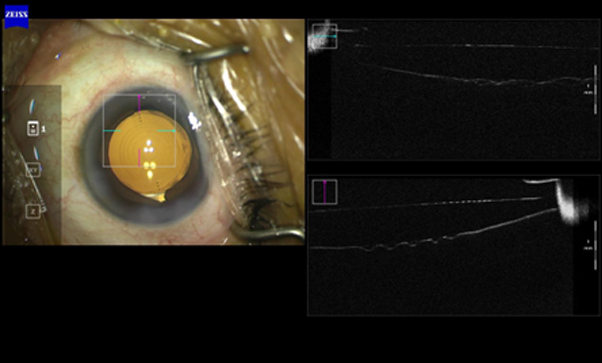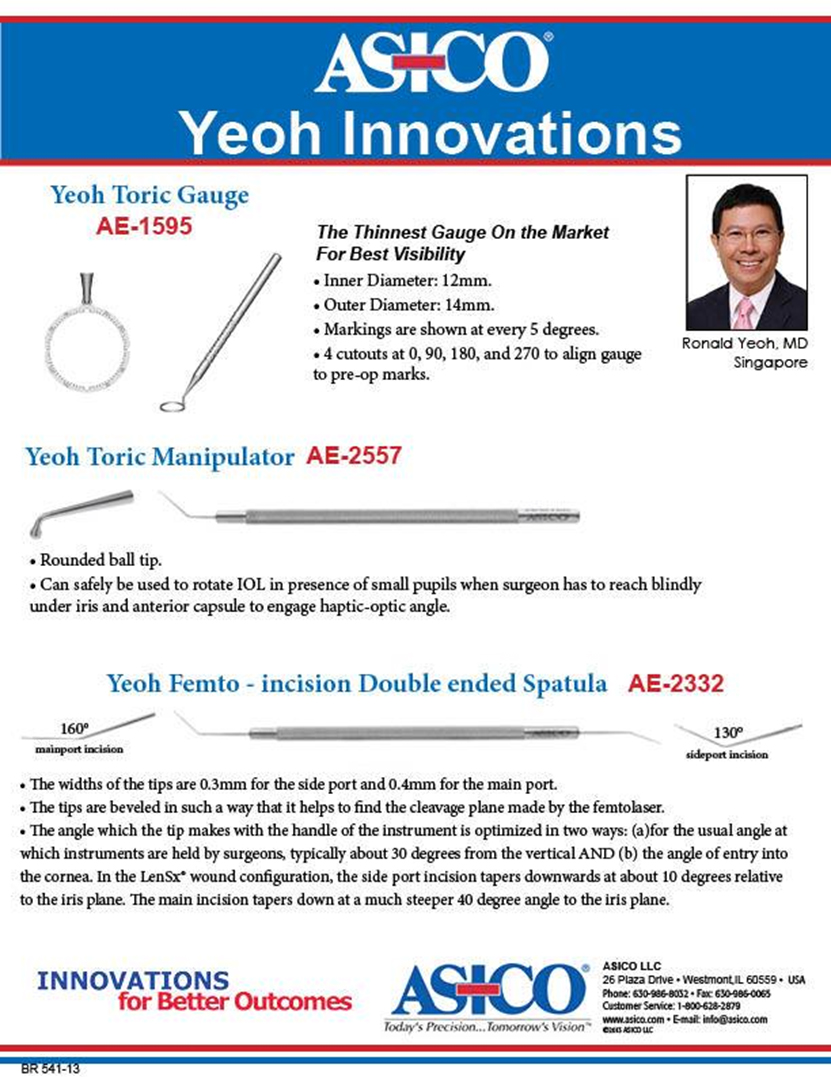Why ERS Cataract Centre (ECC)
ERS cataract centre is a dedicated centre with a focus on quality cataract diagnostics and surgery. We are a team that provides expertise in managing all types of cataracts and managing cataract complications. All doctors in Eye & Retina Surgeons are part of this team.
Every step leading up to cataract surgery and even afterwards is important. This includes the pre-surgery consultation and assessment, the surgery itself and the post-operative care. Of all the pre-operative tests, arguably the most crucial is BIOMETRY (intraocular lens power calculation). Done properly, precise outcomes are attainable. We take pains to take multiple sets of data to give us the best statistical chance of deriving the most accurate lens power choice to implant in a patient’s eye. (so please bear with us if the pre-op testing seems long and tedious; it is to get better outcomes) In cases where the calculations are more difficult, we have joint discussions within our clinic and also with international colleagues to arrive at a consensus as to the most accurate lens implant power choice. All biometry results are vetted to ensure that we give our patients the best possible outcome after cataract surgery. Outcomes are reviewed for accuracy and predictability.
Cataracts may not exist alone! They frequently co-exist with other eye conditions (e.g. glaucoma, diabetic eye disease, uveitis, cornea dystrophy, pterygium etc) which can influence the outcome of cataract surgery. ECC subspecialists have expertise in all these other conditions of the eye and function as a team to ensure that all other concurrent eye conditions are managed well as part of the cataract surgery procedure either before, after or at the same time (e.g. combined cornea transplants, glaucoma tubes or retinal surgery combined with cataract surgery. One area of increasing importance and difficulty is cataract surgery in patients who have had LASIK or other refractive surgery procedure coming up for cataract surgery. Biometry for these patients is even more challenging than usual and ECC surgeons take even more time to try and achieve accurate outcomes.
Several of our surgeons are key opinion leaders to the cataract industry and trainers for cataract surgery. ECC surgeons therefore have early information on new lens designs, have insights as to what is good and what is not and we get early access to new advanced technology intraocular lenses. What is equally important is that we can provide feedback and input into newer intraocular lens designs.
Not all cataracts are the same. Whilst the majority are ‘standard’, some cataracts are different and require high levels of surgical precision and skill for success outcomes. These include black cataracts, white cataracts, very hard or very soft cataracts, anterior capsular fibrosis, posterior polar cataracts and intumescent cataracts. In addition, some cataracts may be unstable, dislocated or subluxated which makes the surgery even more complicated. ECC is well equipped to handle these complex or complicated cataracts due to the extensive experience of our surgeons and specialized equipment for these surgeries. Indeed, many of the instruments used in these complex cases have been designed by our specialists.
Whilst cataract surgery is one of the safest of all surgical procedures, complications can rarely happen as with any operative procedure. In such a scenario, the ECC team has access to other subspecialty cover and expertise in cornea, glaucoma and vitreoretinal disease. All our surgeries have vitreoretinal surgical backup easily available when cases are complex or complicated. This might save a second operation.
Most cataract surgeries result in very happy patients. However, some patients may be unhappy with their outcomes resulting from inappropriate lens implants or surgery that had gone wrong resulting in IOL malposition or dislocation. Some lens implants shift or dislocate years after uneventful cataract surgery. In addition, complications arising from some of these late onset lens implant problems such as glaucoma, corneal or retinal issues may develop insidiously. Our team of doctors are able to perform lens exchange or fix displaced or dislocated implants while concurrently managing corneal, glaucoma or retinal problems.
Phacoemulsification which is the gold standard of cataract surgery in which cataracts are removed via small 2.2mm or smaller incisions.
Femtosecond laser assisted cataract surgery (FLACS). Laser assisted cataract surgery provides an enhanced level of precision. In addition, it is especially useful in certain situations like posterior polar cataracts, white cataracts, very hard cataracts or unstable cataracts.
Manual extracapsular cataract surgery (ECCE) whilst not performed so often nowadays, is still a useful technique in patients with very dense cataracts. The small disadvantage is that of a large incision of about 10-12mm which requires suturing.
Manual small incision cataract surgery (MSICS) is a more sophisticated way of doing ECCE with a small incision size of 6mm; it is often done in eye camps where expensive phacoemulsification equipment is not available.
Operating theatre facilities and equipment
We use the well-equipped Novaptus day surgery facility in Camden Medical Centre. This facility was equipped with the most up-to-date devices on the advice of ECC surgeons.
Lumera 700 Callisto Resight and Rescan operating microscope which offers accurate digital alignment of toric intraocular lenses to correct pre-operative astigmatism. The intraoperative Optical Coherence Tomography (iOCT) Rescan function is useful in complex cataract surgery.
A selection of flagship phacoemulsification machines(for cataract removal through small incisions)from industry is available as primary or back up devices.
Comprehensive surgical instrumentation
Comfortable day ward or private rooms

This shows a lens implant in place and a side view of correct placement using iOCT
Surgical Instruments
Professors Chee and Yeoh have designed numerous surgical instruments to facilitate smoother, safer and more successful surgery in our cataract patients. Many of these instruments are manufactured and sold to eye surgeons by ASICO, a leading American instrument manufacturer. (Neither Prof Chee nor Yeoh derive royalties or payments for these designs as we believe everyone should benefit from them)


Teaching the next generation
All ECC team members hold teaching appointments at national institutions in and out of Singapore and are committed to teaching the finer skills of cataract surgery to the next generation. To this end, we attend and present lectures, instructional movies and courses at cataract conferences all over the world. Whilst this might sound altruistic, it could not be further from the truth for ‘In teaching, we learn’ and teaching keeps us all on our toes.


